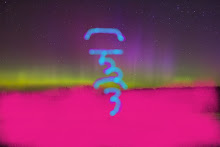I wanted to share two books that I have been studying lately concerning diet. They are THE OKINAWA DIET PLAN and THE OKINAWA PROGRAM. The books are complimentary. The former goes into more theory about what was discovered in a 25 year study of the longest lived culture in documentable history. The diet is a near vegetarian one and can easily be made into a total vegetarian one. I hope some time to go into more detail about the diet and what we can learn and integrate from their example, but right now I want to make some observations and share some from my own experience. In my own journey, I did, in the last few years, gain some excess weight and have the intention of reducing this down to a more sustainable ideal weight. The increase in weight had to do with struggling with a severe ligament tear and not being able to be as active as I used to. I also find, in an immortalist life pattern, that the older we get the more efficiently we burn calories. We need less food to survive and thrive. At some point we need to change our dietary habits to match this increased efficiency. We also live at a calmer and slower pace. Younger people sometimes waste a lot of energy by comparison, overdoing what is needed. This is okay. They have energy to spare and are meant to have this surplus to learn about how to use their energy. In a sense we go from aerobic workouts to Chi Kung over time, where we can feel more energy after we are done, rather than pleasantly exhausted. Different life phases require different things from us. We have yet to have enough people to fully map out an immortalist series of rites of passage, but it will eventually happen.
One of the key ideas behind the Okinawa Diet is that we tend to eat the same amount of food each day regardless of caloric density. If we eat food with too much caloric density, then we will still not feel full until we eat the same amount and we will overeat the amount of calories we need and we will increase our fat and gain weight. Our bodies will kick into defense mode after a while and try to burn off this extra fat. Beyond a certain point the body does not want to store a reserve of energy for emergencies, especially in a time period in human history where many humans rarely go even one day without food. One problem with our food is food is usually less calorie dense because it has a lot of water in it and most processed food removes the water and thereby makes the food more calorie dense. The classic is the much over rated snack bar which has hardly any water and is "packed with nutrients". You can stuff yourself with water infused salads and find gaining weight very hard. You can overindulge just a little with dry calorie dense snacks and gain weight very easily.
Not surprisingly, some of the very best foods to eat are soups. Water is infused with nutrients, the cooking makes the nutrients easier to digest, and you will feel full without having eaten as many calories. Think about eating a bowl of soup and a salad, having some tea, and maybe a small side dish of some kind protein (edamame or a slice of marinated tofu), and you will have a pretty ideal meal. It seems wise to stay away from too much grain and perhaps do without grains for a while if you are weight loss focused. Bean dishes can take their place and they are high in protein.
Having mentioned protein, the Okinawa Diet is not a high protein diet. The various high protein diets around can help to temporarily lose weight by inducing a artificial ketosis, but they are not sustainable in the long run. Sooner or later we need a way of eating that can naturally regulate our weight without strain while giving us all the nutrition that we need. Our carnivore and chemical oriented society does not distinguish between animal and plant protein. This is an important omission, because plant proteins are more usable and you need less plant protein to sustain yourself than animal protein. It seems that a bean has more usable protein that the same amount of protein coming from urine soaked decaying animal muscle tissue (animals die twice, the first is organ death and the second is cell death, when an animal is killed, the organs have ceased to function, but the cells are still secreting substances that are meant to be removed through urination, eventually the cells choke to death in their own fluids). Some nutritionists are big on eating "complete proteins" but the truth is that we do not need proteins, but amino acids. All the proteins are broken down into amino acids and then rebuilt into whole proteins. As long as we eat enough variety we are getting enough. Plant proteins are already partly broken down into amino acids, because they are not built up into the same dense units as in animals. Carnivores have double the stomach acid and half the intestinal length for a reason. The acid has to be strong enough to break down muscle tissue, which is very tough, and then exit it from the body before it putrefies too much. We also need less protein as we mature, because we have already finished building an adult body. Plants are do not decay like animals and sometimes the veggie food is so fresh that it can be replanted and still grow. Plants do not go through organ death, at least not in the same way.
Subscribe to:
Post Comments (Atom)

No comments:
Post a Comment
Note: Only a member of this blog may post a comment.